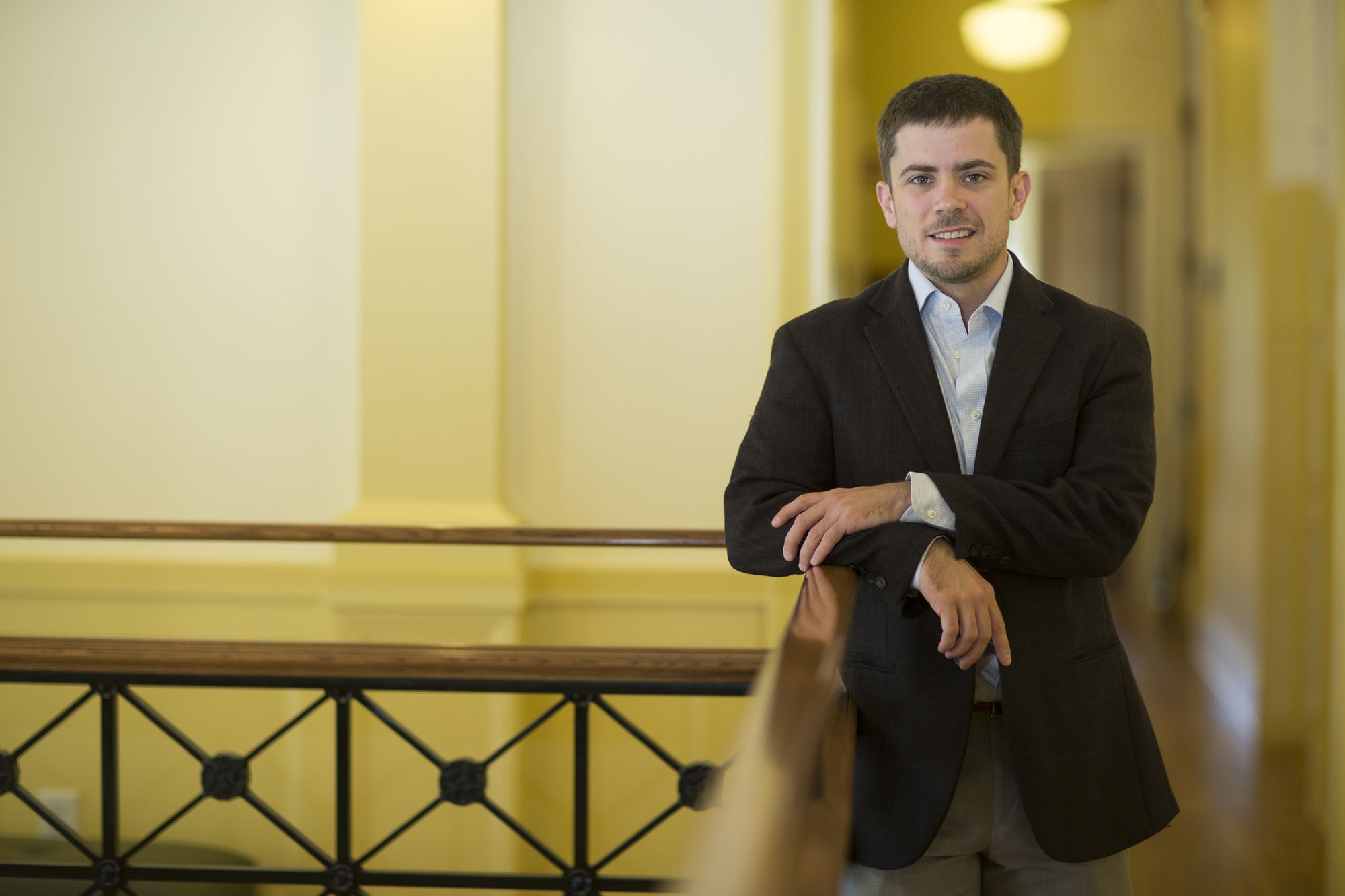There is an abundance of new ideas for improving social welfare; it’s the funding to support those ideas that always seems to be in short supply.
University of Virginia graduate student Joshua Ogburn is trying to change that.
Ogburn is a second-year master’s student in the Frank Batten School of Leadership and Public Policy and heads the Virginia Pay for Success Lab, a research team supported by the University’s Social Entrepreneurship at U.Va. initiative.
“Pay for success is a way to scale up social services that measurably improve people’s lives,” Ogburn said. “Historically, many local and state governments have been too risk-averse to expand many proven programs. One of the many benefits of pay for success is that it shifts some of that risk to private investors and philanthropies.”
With the pay-for-success model, local and state governments set a specific bar for measurable success. Private investors or philanthropies provide the upfront funding to provide the social service with the understanding that the government will only repay the investment if the bar for success is met, with the possibility of a return with greater success.
This type of funding as a concept only began five years ago, but it is already spreading across the United States. Seven localities are currently using it to improve the social welfare of their community, and nearly 50 more are conducting feasibility studies to begin their own programs.
Christine Mahoney, director of social entrepreneurship at U.Va. and associate professor of public policy and politics, has been advising Ogburn on bringing the pay-for-success model to Virginia.
“Ultimately, if we’re going to devise solutions that are really effective, we have to have the collaboration of nonprofits, for-profits and the government. That’s difficult,” Mahoney said.
Ogburn hopes to overcome some of that challenge by bringing state leaders together for one day to discuss pay for success. He’ll do that Friday with Virginia’s first Pay for Success Conference, to be held in the Newcomb Hall Ballroom.
Organizations from across the public and private sectors have come together to make sure it is a diverse meeting of minds. In addition to Social Entrepreneurship at U.Va. and the Batten School, other hosts of the event include the Federal Reserve Bank of Richmond, Third Sector Capital Partners and the Tom Tom Founders Festival.
While the conference will encourage attendees to brainstorm opportunities to apply pay for success in Virginia, the state has actually already begun exploring the concept.
“Over the past summer, I worked with the Virginia Pay for Success Council and the Virginia Department of Health to research the feasibility of using social impact bonds to support prenatal and early childhood health,” Ogburn said.
There is already an abundance of research showing that early home health visitation improves childhood health, reduces long-term medical costs and often bolsters early childhood education. Ogburn has been focusing his research on how these benefits measurably impact the financial situation of the community at large.
He investigates how certain sub-populations would especially benefit from home visitation and how additional home visitation could improve health outcomes in the state. Ogburn and other researchers also have to ask how home visitation for more families might allow the state government to avoid other costs down the road.
“We also consider things like the relative importance of children’s health to the community, and that’s a value that’s harder to quantify,” Ogburn said.
At Friday’s conference, Ogburn and speakers from many of the leading organizations that are focused on pay-for-success will explain the kind of information all pay-for-success projects need before moving forward.
“Almost all investors want to see data about their investment and they are willing to bet on something that has a proven model,” Mahoney said. “With social impact bonds, they can provide new capital in a way that’s simply not possible otherwise. There simply aren’t enough philanthropic dollars around.”
Pay for success also lets them use their dollars to support more people over a longer period of time.
“Investors have the opportunity to get their money back with interest, so instead of just granting it once, they can keep using it to help different programs. What you can invest is multiplied over and over again,” Ogburn said.
Media Contact
Article Information
September 23, 2015
/content/grad-student-social-impact-bonds-could-be-win-investors-society

